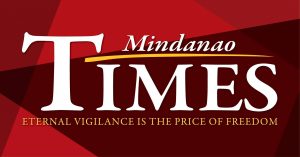 MAYOR Sara Duterte on Monday said the Davao City Task Force on COVID-19 will meet to tackle how to adopt the saliva test for the virus since it’s cheaper than the swab test.
MAYOR Sara Duterte on Monday said the Davao City Task Force on COVID-19 will meet to tackle how to adopt the saliva test for the virus since it’s cheaper than the swab test.
“Wala pay discussion ana karon. I do not know if it will be the same machine and process.
Wala ko kabalo ana Kay dili ko familiar on how the machine works (There’s no discussion on that for now. I have no idea because I am not familiar on how the machine works),” Mayor Sara Duterte said in a live interview over Davao City Disaster Radio on Monday.
“On the discussion regarding that with TF (Davao City Task Force on COVID-19)? Yes, because it is cheaper,” she said.
A saliva test will cost P2,000, which is significantly more affordable than a nasal test that costs P3,800.
The Philippine Red Cross (PRC) has started saliva testing after securing approval from the Department of Health last Jan. 25.
PRC chairman Senator Richard Gordon earlier said the price of saliva test may decrease if more people would avail of the test. The initial rollout, however, is limited to the PRC’s laboratory at its headquarters in Mandaluyong City and its molecular laboratory in Port Area in Manila.
Gordon said that all molecular laboratories of the PRC in the country can offer the saliva-based testing by Feb. 5.
Online registration
for COVID vaccine
Meanwhile, Davao City will roll out an online registration for people receiving shots using the Safe Davao QR Code system.
“Paperless ang atoang approach (Our approach is paperless) and you will use your DQR for that. It’s the same account that you will use,” she said.
The SafeDavao QR is currently being used for contact tracing.
On Feb. 3, the use of the DQR for contact tracing will be mandatory per Executive Order No. 2 s. 2021.
The mayor said the city and the developers of the DQR are coordinating on how to maximize the use of the system for the registration for the vaccination program so there will be no need for people to crowd the sites for registration.
Meanwhile, the Department of Health (DOH) said there are two groups eligible for the initial vaccination—the Priority Eligible Group A and B. The policy is based on the World Health Organization Strategic Advisory Group of Experts on Immunization (WHO SAGE) recommendation.
The Priority Eligible Group A includes frontline health workers, indigent senior citizens, remaining senior citizens, remaining indigent population, and uniformed personnel (AFP, PNP, PCG, BFP, Cafgu).
Group B includes teachers, social workers, other government workers, other essential workers outside health, education, social welfare sectors, socio-demographic groups at significantly higher risk other than senior citizens and indigents, overseas Filipino workers, and the remaining workforce.
The DOH has set guidelines on the vaccination hubs for the priority groups: hospitals for the health workers, medical frontliners, and elderly group. While for the general public, the utilization of public schools and gyms is still up for discussion.
